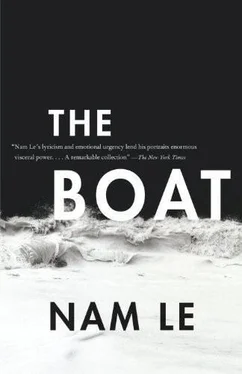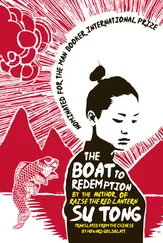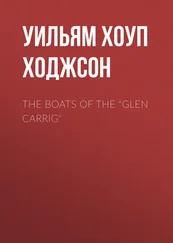Mahmoud flung out his right arm. "You see them?" he asked. "Look."
They gathered, where he pointed, in fluid, makeshift groups. Teenagers, by the looks. Most of the girls wore high heels and flared jeans or calf-length capris. Their faces glossy and made-up. Their scarves not black but bright and diaphanous, pushed far back to expose their hair, and instead of the long, loose overgarment they wore figure-hugging trench coats that barely reached their knees. Even through her outward alertness Sarah felt self-conscious. She remembered the pilot's announcement on the plane, remembered feeling, curiously, the act of covering up as though she were stripping naked. But this. How could anyone arrest anyone at all when all this was in plain sight, was plainly permissible?
"They are not here for Ashura," spat Mahmoud. "They are here for Valentine's Day." Many of the girls in lazy possession of bouquets and teddy bears. Couples holding hands.
"You know what they call this? 'The Hussein Party.' " He didn't look at her. In the candlelight, his features seemed statuesque. He hadn't touched his kebab. She caught a sudden whiff of spice on the wind.
Firecrackers went off again, closer this time. She shifted in her seat. There ran a new restlessness through the youth. Cell phones, dozens of them, ring tones random as wind chimes.
They came from the southern edge of the park. Four cars — old sheet-metal heaps that could have been salvaged from American junkyards, one with a broken, million-glinting windshield — pulled up bumper to bumper and they spilled out, men with various beards, holding clubs and chains and walkie-talkies.
"It's them," hissed Mahmoud. He yanked her back down onto the bench. "They will see you."
One man swung a baton through the crowd of youth as though cutting through brush with a machete. They skittered apart. A girl screamed. Several of the men stood behind the others and spoke out through cupped hands, clearly and ecstatically. One came toward them. He paused in front of the stage and took in the show.
"Your scarf."
She pulled her scarf tight over her head, tucking in every strand of hair, leaving the front hanging, cowl-like, over her face.
More cries sounded out from the maze of stalls. The rows between them clearing fast. The men fanned deeper.
"You must stop looking at them," said Mahmoud. He moved closer to her on the bench. They were a couple now, close enough to be conventionally transgressive — but not too close. An older couple in this park of kids, with nothing to fear from these men.
Her breath caught when she saw a group of them dragging three shapes back to their cars. Then she saw. She actually felt her heart stop. The darkly stubbled face — it was Reza, seemingly unconscious. The other two were young men she didn't recognize. A strange girl stood rooted at the edge of the square and lifted her hands to either side of her nose and mouth.
"Stop looking," Mahmoud murmured. She let her face drop, inhaled sharply. Now the men were banging their clubs against steel poles. She felt each impact in the seat of her stomach. Warmth emanated from Mahmoud 's body. The ground was wet, busy with candlelight, green shadows. The old man opposite started talking, roaring with laughter. Another man's voice joined in.
Mahmoud leaned in closer. "You are an American citizen," he said. "You will be safe."
"Did you see Parvin?"
"Listen to me," he whispered into her ear. "Listen to me. When Parvin first came back, she was taken."
Sarah's stomach, already riled, turned hot and sick.
"But she did not want to tell you. But she was safe. I tell you this because."
A man stopped in front of them. Bits of gravel and broken glass stuck to the rim of his soles: cheap, synthetic-leather shoes. You couldn't beat anyone with those shoes. The wooden club hanging beside them.
" Salam ."
" Salam ," Mahmoud said. Sarah kept her head bowed, the hard burl of cloth digging into her throat. The men conversed for some time. He sounded normal, in good cheer, this man with his wooden club. He told a joke and found it worth repeating again and again. Mahmoud laughed behind his words with terrible sunken sobs. Then the man fell silent — a short lull — and when he spoke again his tone had changed. He was speaking to her.
Mahmoud said something in Farsi. The strange man reacted animatedly, quarreling now with the exaggerated intonation she'd come to expect, through TV, from Middle Eastern men — that windy, slightly petulant swing of voice. Mahmoud turned and murmured to her, but in Farsi. Those words — their lilting, curious energy — she was sure they held the key to her life. If she could just understand those words. The man reached down, elbowing Mahmoud aside, and lifted her chin.
Breath rushed into her windpipe; she started to cough, then stopped herself.
The man considered her. There was a dangerous looseness through his face — his wide-spaced eyes, his purple lips swelling out through his beard. She felt irrationally as though she already knew him, had encountered him already in some similar situation. Mahmoud so young, fresh-faced, next to him. The man said something to her. She was aware of his companions prowling the square behind him as he prodded the club into the damp ground, leaving a mesh of curved dents. She forced herself to smile-the effort tearing up her eyes — then she drooped her head again. The lamb kebab lurching up from her gut. She had to not vomit.
What choice did she have? She stood up. The man shouted aloud. Three other men rushed over, one snaking a steel-link chain behind him, another's trousers sodden at the ankles. The smell of gasoline strong off them.
Her heart pounded her skull. "I am an American citizen," she said. Her voice came out squeezed, for some reason English-accented.
They all fell silent. Then the first man laughed, a harsh, high-pitched sound. Mahmoud got to his feet, started talking, his speech gaining momentum. He took out his wallet and showed it to the man. Sarah kept her gaze trained on the ground. All four men started laughing, then at one point the man with the chain threw a question to Mahmoud. He replied. Behind them the clatter and thrum of car engines, distant human cries from the street. The square itself gone quiet. Finally the first man tossed back Mahmoud's wallet and lifted up his club with a twirl, like a baseball player loosening his wrist, and tapped it against the sole of one shoe, then the other, and when his second shoe met the ground he'd already swiveled and walked away. The others followed him.
Sarah waited, blood surging in her ears. Not daring to look up. Finally, she did. The square was empty. The cars were gone. They were safe.
She turned to Mahmoud. "What did you say to them?"
His face was tight, sickly-looking.
"What did you say?"
"You saw who they took?"
She nodded.
"They said they took them as American sympathizers."
"But not me."
"Not you." He chuckled dryly. "I told them you were nothing. You are a foolish tourist I guide around our city."
She shuddered her head. She felt dizzy in the green-glowing landscape. Flags snapping in the wind.
"Who were they? What will happen to Reza?"
"I said I wanted to show you this beautiful square and it is too bad, with all these infidel youth."
She clutched his arm. "Where's Parvin?" she asked. She felt a desperate compulsion to keep asking.
Mahmoud chuckled again, an abrasive sound like he was hawking up phlegm. "You are an American woman. He was jealous of me, for being with you." They both sat down. She realized she was shaking, was chill with sweat. He took out his cell phone and dialed a number. She watched the fingers of his free hand as they twitched beside his legs, as though in some meaningful order, as though warming up some invisible instrument. He tried another number. Another. Finally he got through. His voice swerved to a different pitch and pace. She waited — all that time, waiting — time driven into the act of waiting for him while he talked. He hung up.
Читать дальше











